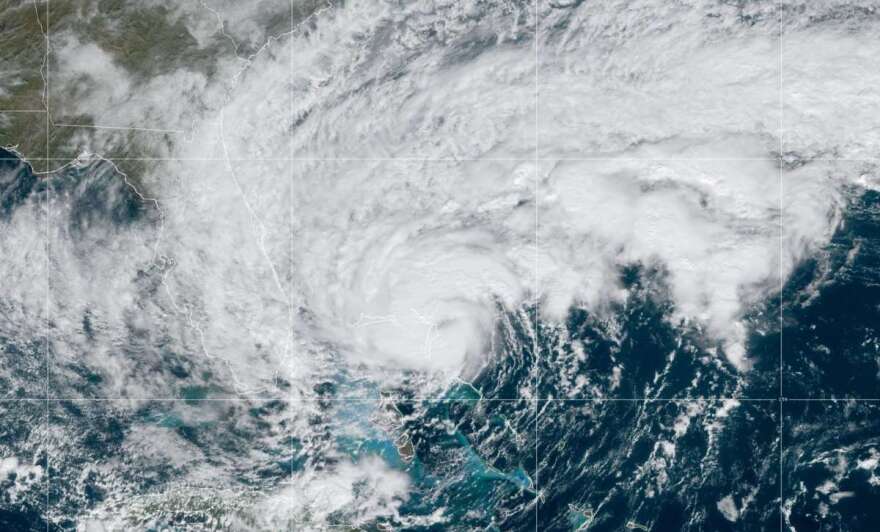Tropical Storm Nicole is on track to make landfall later Wednesday in Florida as a rare November hurricane.
WMFE environmental reporter Amy Green talked with University of Central Florida hurricane expert Kelly Stevens about how unusual a hurricane in November is for Florida.
STEVENS: It is pretty rare, but possible. Hurricane season runs through Nov. 30, so sometimes this does happen.
According to researchers at Colorado State University, if Nicole makes landfall as a hurricane it will be the second-latest hurricane ever to hit the United States, and the latest-recorded landfall ever for hurricane on the east coast of Florida.
GREEN: And how unusual is a system this size?
STEVENS: This is a really large storm, which is kind of rare. Late-season hurricanes tend to be less organized. The dynamics and the atmosphere are a little bit different, so it's kind of normal to see a large storm late in the season. But compared to Ian, compared to our usual hurricane size, our tropical storm size, this is much, much larger.
GREEN: Can you talk about why we're seeing this system so late in the season? And why it's so large?
STEVENS: This formed kind of in rare conditions where there was a pocket of like a protected atmosphere for the storm to form.
Usually later in the season there's more wind shear. There's more frontal systems that are affecting Florida and the east coast and kind of making the atmosphere more choppy.
But in this case Nicole was able to form in a pocket of more stable weather, which allowed it to develop to the degree that it has. And it hit the spot on the east coast that was really protected, which allowed it to intensify yesterday and overnight, where it's now a decent size and strength of storm.
The size of the system, sometimes these storms, just the conditions are such that it's able to spread out to the degree that this one has. But I can't tell you exactly what the conditions were for this one.
GREEN: Hurricanes, of course, thrive over warm water. And we're also seeing storms earlier in the season. With climate change, is this our new normal? I mean, would you anticipate Florida having a hurricane over Thanksgiving?
STEVENS: Oh, I hope not. As far as late-season hurricanes go there hasn't been a trend and an increasing number of (late-season hurricanes). So this storm alone doesn't really say much about climate change.
But it is possible with warming seas or seas that stay warmer longer that more hurricanes could form late in the season like this one.
There is a trend in hurricanes and tropical systems forming earlier in the season, like you mentioned. I think in the last six or seven years there's been something that has formed in May, when the season officially begins June 1.
So there is some talk about extending the season, mostly on the front end to make it earlier.
GREEN: That was going to be my next question: Will there be an official lengthening of hurricane season beyond June 1 and November 30?
STEVENS: Since more storms have been forming earlier in the season the idea is that if we start hurricane season earlier, perhaps May 15, people have more of a chance to be aware, or they will be more aware and more prepared as the hurricane season gets underway.
Later in the season, it'd be very strange to see something form in December. So I feel like right now the season is sufficiently long in coverage, of the whole month of November, that there probably doesn't need to be an adjustment on the back end of the season.
But the front end, that does seem to be something that the National Hurricane Center is considering seriously.


